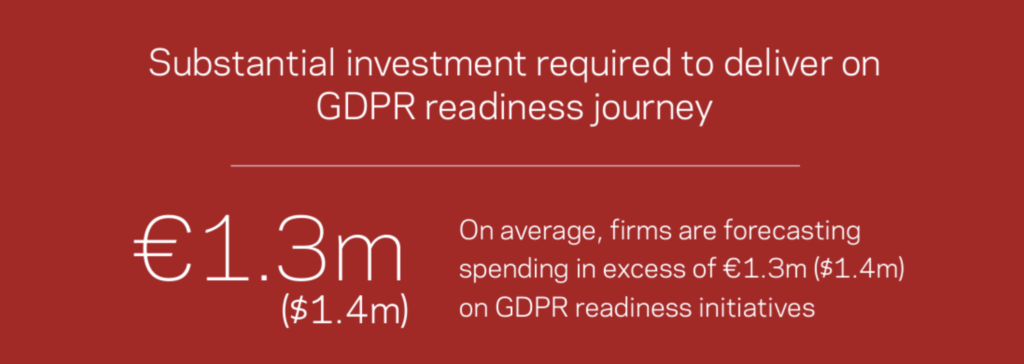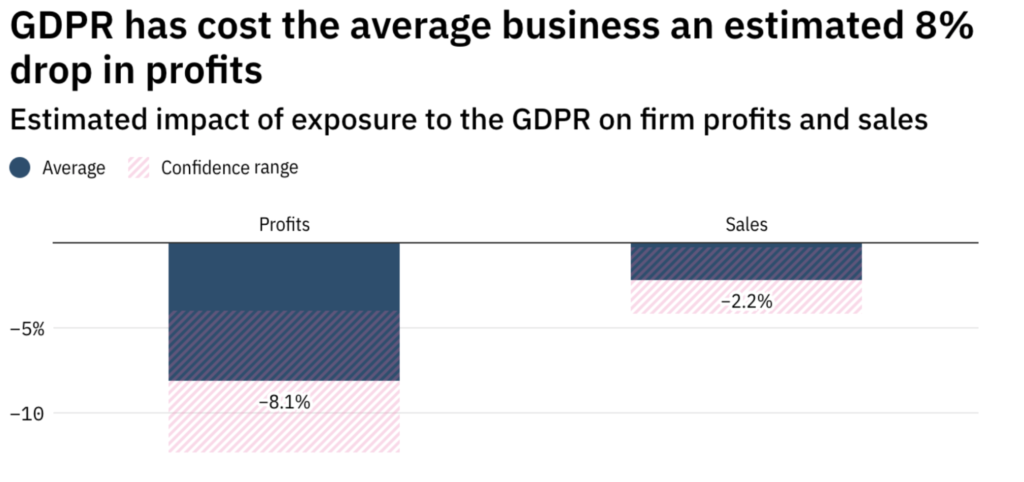GDPR in Automated Direct Mail Mythbuster
The GDPR
The General Data Protection Regulations (GDPR) was a set of legislation passed by the EU affecting the EU economic zone. The GDPR standardised data protection laws in order to help consumers hold power over their personal data in the fast-evolving digital economy we are living in. The 7 core principles the UK GDPR believes in are:
(ICO.org, 2022)
- Lawfulness, fairness and transparency
- Purpose limitation
- Data minimisation
- Accuracy
- Storage limitation
- Integrity and confidentiality (security)
- Accountability
These 7 principles are outlined at the very beginning of the GDPR legislation. Those living in the EU are under protection from the GDPR, whilst those in the UK are not since December 31st 2020. The UK has a UK GDPR which is a modified version of the GDPR legislation which has been changed to accommodate the UK’s law and domestic jurisdiction.
Since the introduction of the GDPR, it has become a requirement for consumers to clearly consent before any of their data is used for marketing. Consumers need to be provided with “clear and concise” information on how their data is being collected and what explicitly it is being used for by an organisation. What this means is that marketers could encounter difficulties with generating that first-party data.
Data collection & storage issues
The GDPR tackled an additional issue with its implementation, which was cyber security and data storage problems. Firstly without the GDPR legislation collecting consumer data via cookies was what most marketers would do. The problem was most consumers were unaware of this, as third-party cookies didn’t require consent prior to the legislation. There was a lot of consumer data floating around, which in turn meant that if there were data leaks or cyber security failures these consumers would almost certainly be in danger.
Metrics
Whilst third-party cookies were a great tool for marketers it was also a double-edged sword to them at the same time. An obsession with tracking and assessment of metrics can lead to a lack of creativity, as brands lose focus of consumers neglecting their engagement for reach. This neglect of consumers can easily turn into a loss of customers over time.
Looking to reach measurement goals rather than meaningful marketing decisions that strategically benefit the firm can be harmful over time. Whilst a marketing campaign that achieves its goal in likes, views or comments might seem successful, it could just as easily jeopardise successful customer engagement as well.
Marketing spending adoptions since GDPR implementation
Gathering large amounts of data wasn’t nearly as expensive as it is today before GDPR came into play. The cost of compliance with GDPR legislations was estimated to be around £1.1 million across European and British firms which in turn has increased costs to obtain customer data.

(Source)
Over 88% of companies were paying over £900,00 per year, and 40% of companies were paying more than £8,700,000 per year to comply with GDPR and collect similar quantities of consumer data. In addition to this, the costs of breaching GDPR or UK GDPR legislation can cost up to £17,500,000 or 12% of the firm’s yearly turnover.

(Source)
To put it into a different perspective firms on average are losing up to 8% on their profits due to the rising costs of marketing. In a world where third-party cookies are dying off, and considering rising costs it is now more crucial than ever to ensure adequate utilisation of your own first-party data sources to help fuel successful marketing
IOS & Smartphones
Smartphones have become one of the primary mediums that marketing is consumed through nowadays. Similarly to laptops and desktops, smartphones have previously harnessed third-party data. Smartphone apps collect data by assessing watch times, patterns, peer usage (recommending content based on what your most texted peers consume) and even through location tracking. However, the GDPR legislation ensured that this level of privacy invasion would be challenged.
Third-party cookies have been on the decline for years, with Google and Apple deciding it is time to end the use of third-party cookies altogether. Demanding privacy, transparency and choice over their own data is something Google began to preach in recent years. Justin Schuh, Google’s director of Chrome engineering is looking to change the way google approaches consumer privacy by pushing the elimination of third-party cookies. 2022 is set to be the year that Google’s own internet browser app Chrome is going to phase out the use of third-party cookies.
Where does Automated Direct Mail play a role?
With all the impacts and changes brought about by the introduction of the GDPR, direct mail has been presented with an incredible opportunity to become strategically significant again.
Automated direct mail marketing demonstrates anything but a lack of creativity. Sending a personalised message and offer to a consumer’s front door is something special. Giving them a personalised offer landing in their home still effectively utilises data in a complicit way (customers do not have to opt into postal marketing to receive) It also makes the individuals feel like they are receiving relevant and personalised content.
1st-party cookies
Paperplanes only utilises first-party data for the creation of successful direct mail marketing campaigns.
Consumers whose data shows important behaviour such as the fact they haven’t made a repeat or second purchase will receive a campaign tailored to create more value from these consumers. Consumers who left their virtual basket full will receive a follow-up on their abandoned basket. Even those consumers who haven’t been to the e-commerce website in an extended period of time could be targeted again through Paperplanes Automated Direct Mail.
Paperplanes Solutions
Paperplanes direct mail solutions offer marketers the option to put their reliance on third-party cookies in the past.
Paperplanes solutions have helped several businesses rejuvenate their marketing and achieve great results such as:
- Website Returns
-
-
- 300% More likely to return
- 20% immediately went to the website
-
- Time spent browsing
-
-
- 50% more time spent browsing pages
-
- ROAS
-
-
- ROAS of £11 for every £1
-
- ROI
-
-
- £15 ROI for every £1 invested
- 7 times stronger than initial
-
- Topline Conversion
-
-
- 9.3% Topline conversion
-
- Abandoned basket conversions
-
-
- 40% Stronger with mail
- 9.3% of Baskets recovered
-
- Winback performance
-
- 12% of Lost customers were re-won
To learn more about Paperplanes and talk to our CEO please fill in the form at the bottom of your screen.
Sources
https://thinksmartmarketing.com.au/analytical-vs-creative-marketing-the-balance-for-driving-growth/
https://www.itgovernance.eu/blog/en/how-much-does-gdpr-compliance-cost-in-2020

